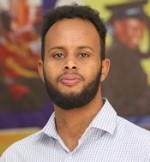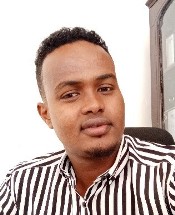that most significantly influence the performance of SMEs when executing projects in Hargeisa
FEATURED PAPER
By Adebayo Adeboye Fashina1,2*, Sakariye Mahamed Abdilahi1, Mohamed Hassan Ahmed1, and Funke Folasade Fakunle3
1Project Management Program, School of Graduate Studies and Research, Gollis University, Hargeisa, Somaliland.
2Engineering Management Program, School of Graduate Studies and Research, Gollis University, Hargeisa, Somaliland.
3Compliance and Auditing Department, AdeFolasade Management Systems Consults, Lagos-Nigeria.
*Corresponding author: Adebayo Adeboye Fashina. adebayofashina@gmail.com
Abstract
In the past years, there have been an increasing development in the field of project management and its practices. Yet, less attention is being placed on projects and project management practices in small and medium businesses (SMEs) unlike in big businesses. This is because the management of projects in big establishments is believed to have extremely different features compared to project management practices of projects in SMEs. There is therefore, a need to apply less management bureaucracy with more flexibility to projects in SMEs. Within this context, this study attempts to fill the identified knowledge gap by exploring the project management practices that most significantly influence the performance of SMEs when executing projects in Hargeisa. With the use of a questionnaire survey design, data were collected from 46 SME stakeholders selected based on simple random sampling. SPSS Statistics Software and Microsoft Excel Packages was utilized to compute the Cronbach’s Alpha, mean values and Relative Importance Index (RII), respectively, for reliability check and ranking purposes. Results indicate that project communication management (RII = 0.700), project schedule management (RII = 0.683), and project procurement management (RII = 0.670) are the three most impactful project management practices that influence the organizational performance of SMEs in Hargeisa, respectively. The implications of the findings in this study are quite crucial to the SME industry as they proffer resourceful insights that could enlighten SMEs owners in Somaliland and beyond on the importance of the application of project management practices in future SME projects. Accordingly, the Government of Somaliland are recommended to formulate policies that can support project management capacity building in SMEs in Hargeisa.
Keywords: Project Management, SMEs, Low- and Medium-Income Countries, Project Management Knowledge Areas, Organizational Performance, Hargeisa-Somaliland
Introduction
Today, project management has become an indispensable persistence obligation for most organizations in a fast-changing environment (Munns & Bjeirmi, 1996). Consequently, more new products and services are expected to be developed and applied as fast and competently as possible on one hand, as the project life cycle picks up the thread to decrease. On the other hand, products are becoming outdated at a progressively high rate which implies that a cost-effective management approach is required for the selection and development of new projects. This will thus allow the invention of unique, and high-quality goods and services that capitalize on the possibilities of commercial success, in the midst of inadequate resources.
Aside from the fact that project management method is a leading system that allows organizations to meet their objectives in a timely manner (Badiru, 1999; Kimmons & Loweree, 2017), it has also become a crucial part of huge technology management, that is a vital component in the globalization drive that has changed the world economy in the last decade (Abdilahi, Fashina, & Fakunle, 2020; Fashina, Abdilahi, & Fakunle, 2020). However, in today’s small and medium enterprises, projects are being managed within progressively complex atmospheres (Alquier & Tignol, 2006). This is due to the fact that businesses must effectively manage crucial project creativities such as new product expansion, policy application, outsourcing etc. (Burlton, 2001). Within this context, the implementation of projects in organizations are handled via various project management practices that are applied daily by diverse project managers (Atawodi & Ojeka, 2012; Forsman, 2008). Nonetheless, definite objectives that will guide the projects to completion are required and are set as targets to be achieved at the end of such projects (A. K. Munns & Bjeirmi, 1996). Specifically, the motivation of realizing the desired profits and the feat of organizational performance comes from the need to successfully implement these projects (Mir & Pinnington, 2014).
Furthermore, businesses that successfully implement projects make use of effective project management practices as an instrument to accomplish the set organizational objectives (Munns & Bjeirmi, 1996). Following the strategic influence of projects on a business, organizations are required to strive after effective project management practices that can help ascertain the progress and risks involved in projects (Fashina, Fakunle, & Opiti, 2020; A. Munns & Bjeirmi, 1996). This is also geared towards ensuring that precise projects can be delivered in line with business preferences in order to achieve a better organizational performance (García-Morales, Jiménez-Barrionuevo, & Gutiérrez-Gutiérrez, 2012). In addition, time, cost and quality are vital determinants/components for the success of such projects and they are also utilized as variables for the assessment of project management practices against organizational performance (Aubry & Hobbs, 2011; Aubry, Hobbs, & Thuillier, 2009).
Over the past few years, SMEs in Somaliland have managed projects across various regions in Somaliland and in some Eastern African countries ranging from trading to construction (Omar, Fashina, & Fakunle, 2020). As such, they are been seen as one of the major drivers of economic growth and job creation in the country (Fashina, Abdilahi, Fakunle, & Ahmed, 2020). In spite of this great feat and efforts from the Somaliland government and its partners, SMEs activities are still limited with resources required to improve their performance. In as much as the resources of most SMEs are limited, a relatively lower version of project management practices is required to strengthen their organizational performance in terms of an improved market share and returns on investment from successful projects executed (Aubry & Hobbs, 2011). Moreover, as the number keep increasing, it is important to thus investigate the SMEs in Somaliland, particularly, those that have embraced project management practices in executing projects successfully in order to retain or increase their customer’s base and grow their businesses…
More…
To read entire article, click here
How to cite this paper: Fashina, A. A.; Abdilahi, S. M.; Ahmed M. H.; Fakunle, F. F. (2020). Examining the project management practices that most significantly influence the performance of SMEs when executing projects in Hargeisa; PM World Journal, Vol. IX, Issue VI, June. Available online at https://pmworldlibrary.net/wp-content/uploads/2020/05/pmwj94-Jun2020-Fashina-etal-PM-in-SMEs-in-Hargeisa.pdf
About the Authors

Dr. Adebayo Adeboye Fashina
Hargeisa, Somaliland
![]()
Dr. Adebayo Adeboye Fashina is a young certified management consultant (CMC), professional researcher, educator and education management consultant with over eight years of significant international experience working on STEM education, EOMS/Project management research and teaching, science research and teaching, and capacity building at various levels of education across Africa.
Dr. Adebayo hold a Bachelor’s degree in Physics/Electronics, MSc. in Theoretical Physics and Ph.D. in Theoretical and Applied Physics. He currently works with Gollis University, Hargeisa as an Associate Professor of Physics and Engineering Management. Prior to his present job, he worked as a Researcher/GTA/Lecturer-B at AUST before joining Kampala International University, Uganda as a Senior Lecturer and later worked as an Associate Professor at William V. S. Tubman University, Liberia. He was nominated for the 2016 Sustainable Energy Africa Awards and shortlisted as one of the three finalists in the ”Emerging Leaders” award category at the 2016 Nigeria Energy Forum.
Dr. Adebayo has conducted training workshops, seminars and given speeches/talks/presentations at local and international conferences. He has published more than 20 articles in reputed journals and is an active reviewer of many international journals. He is a motivated, energetic and focused individual with strengths in innovative teaching approaches, interdisciplinary research, data analysis, teacher training and team management. His research interest includes sustainable living, project management, RE policy and management, education organization management system (EOMS), educational planning, photonic nanostructures of materials etc. He is a fellow of African Scientific Institute, USA and the Institute of Management Consultants, Nigeria.
Dr. Adebayo can be contacted on adebayofashina@gmail.com or afashina@gollisuniversity.org

Sakariye Mahamed Abdilahi
Hargeisa, Somaliland
![]()
Sakariye Mahamed Abdillahi is a member of Dr. Adebayo’s research group at Gollis University and an Assistant Lecturer in the department of telecommunication engineering at same University. Sakariye hold a B.Sc. degree in Telecommunication Engineering and Master of Arts in Project Management from Gollis University, Hargeisa, Somaliland. He is proficient in communication, training, organization, the use of social media outlets, and the use of Microsoft Office packages such as MS Word, MS Excel, and MS Power point.
His research interests evolve around the application of project management knowledge areas to telecommunication projects, project and engineering management, application of project management knowledge areas to small and medium enterprises (SMEs) etc. Sakariye can be contacted on zakariemoe@gmail.com

Mohamed Hassan Ahmed
Hargeisa, Somaliland
![]()
Mohamed Hassan Ahmed is a member of Dr. Adebayo’s research group at Gollis University. Mohamed hold a B.Sc. degree in Environmental Science and Master of Arts in Project Management from University of Hargeisa and Gollis University, Hargeisa, respectively. His research interests evolve around application of project management knowledge areas to small and medium enterprises (SMEs).
Mohamed can be contacted on nuuradiin444@gmail.com

Funke Folasade Fakunle
Lagos Nigeria
![]()
Funke Folasade Fakunle is a young female NEBOSH international diploma qualified professional with 10 years of significant QHSE experience in QHSE management, training and consultancy. Being passionate about Health, Safety and Environment (HSE) and management system in the workplace, she has acquired certifications in Process Safety: Hazard Operability study (HAZOP), Lean six sigma (Green Belt Holder), ISO 9001 Lead Auditor, OHSAS 18001 Lead Auditor, AOFAQ Level 3 Award in Education & Training, NEBOSH International Diploma in Occupational Safety and Health, NEBOSH International General Certificate in Occupational Safety and Health, Project Management, Rigging Safety and Inspection etc.
Funke received a B.Sc. degree in Mathematics from the University of Uyo, Akwa-Ibom, Nigeria in 2008. Over the past 10 years, she has gained significant QHSE experience in various industries. These include construction, oil & gas, logistics and transportation, telecommunication, manufacturing, banking and security sectors. She is a register Professional/Associated Member of the International Register of Certificated Auditors (IRCA), International Institute of Risk and Safety Management (IIRSM), and Society of Petroleum Engineers (SPE).
As an QHSE Consultant/Trainer at present, she conducts QHSE training, consulting and auditing/evaluation exercises that help improve the QHSE Management Systems of various organizations. This allows her to adequately provide her clients with the necessary advisory services that include but not limited to HSE employee orientation training, development, planning and implementation of QHSE Management Systems, QHSE auditing, Environmental Management System, process improvement and so on.
Funke can be contacted on funkefolasade7@gmail.com









